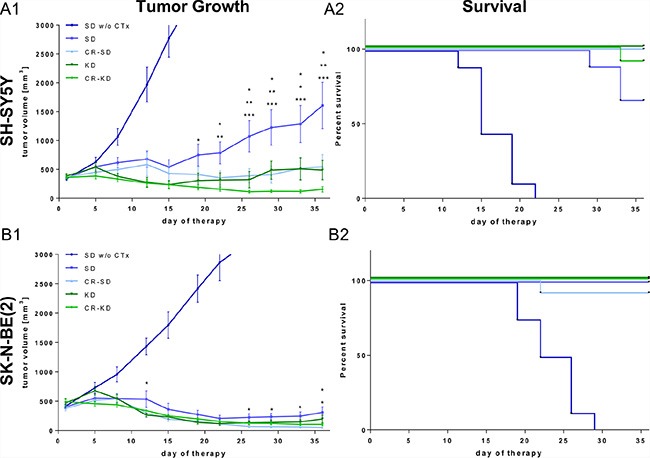Figure 1. Dietary intervention enhances the growth inhibitory effect of MCP on NB xenografts.

After establishing tumors, mice were randomized to therapy and control groups as indicated. For xenografts of both cell lines the MCP regimen significantly inhibited tumor growth compared to the SD group w/o CTx (p < 0.001). (A1) SH-SY5Y and (B1) SK-N-BE(2) tumor growth curves. Data points represent mean values ± SEM of the corresponding therapy group (n = 8–12). (A2) and (B2) show Kaplan–Meier survival curves for mice with SH-SY5Y and SK-N-BE(2) xenografts respectively. Survival was significantly prolonged in all therapy groups when compared to the SD group w/o CTx (p < 0.001). The effect of dietary intervention on tumor growth was evaluated by comparing diet groups to the corresponding SD on MCP. Significance levels are given for each dietary intervention group compared to SD on MCP and are stacked from the group with lowest to highest tumor volume. Statistics: ANOVA (p < 0.05) followed by two-tailed Dunnett's test correcting for multiple comparisons; *p ≤ 0.05; **p ≤ 0.01; ***p ≤ 0.001. Differences in survival were determined in a univariate analysis with the log-rank test. Death is coded: tumor volume above 3000 mm3, tumor ulceration or impaired health condition. Abbrev.: SD, standard diet; CR, calorie restriction; KD, ketogenic diet; w/o CTx, without chemotherapy; MCP, metronomic cyclophosphamide.
